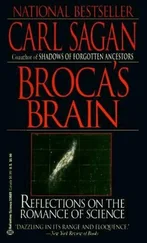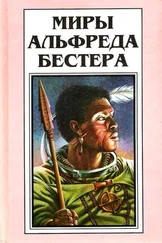As computers become better tuned to real-world problems, they provide not only algorithms that people can borrow for their own lives, but a better standard against which to compare human cognition itself. Over the past decade or two, behavioral economics has told a very particular story about human beings: that we are irrational and error-prone, owing in large part to the buggy, idiosyncratic hardware of the brain. This self-deprecating story has become increasingly familiar, but certain questions remain vexing. Why are four-year-olds, for instance, still better than million-dollar supercomputers at a host of cognitive tasks, including vision, language, and causal reasoning?
The solutions to everyday problems that come from computer science tell a different story about the human mind. Life is full of problems that are, quite simply, hard. And the mistakes made by people often say more about the intrinsic difficulties of the problem than about the fallibility of human brains. Thinking algorithmically about the world, learning about the fundamental structures of the problems we face and about the properties of their solutions, can help us see how good we actually are, and better understand the errors that we make.
In fact, human beings turn out to consistently confront some of the hardest cases of the problems studied by computer scientists. Often, people need to make decisions while dealing with uncertainty, time constraints, partial information, and a rapidly changing world. In some of those cases, even cutting-edge computer science has not yet come up with efficient, always-right algorithms. For certain situations it appears that such algorithms might not exist at all.
Even where perfect algorithms haven’t been found, however, the battle between generations of computer scientists and the most intractable real-world problems has yielded a series of insights. These hard-won precepts are at odds with our intuitions about rationality, and they don’t sound anything like the narrow prescriptions of a mathematician trying to force the world into clean, formal lines. They say: Don’t always consider all your options. Don’t necessarily go for the outcome that seems best every time. Make a mess on occasion. Travel light. Let things wait. Trust your instincts and don’t think too long. Relax. Toss a coin. Forgive, but don’t forget. To thine own self be true.
Living by the wisdom of computer science doesn’t sound so bad after all. And unlike most advice, it’s backed up by proofs.
* * *
Just as designing algorithms for computers was originally a subject that fell into the cracks between disciplines—an odd hybrid of mathematics and engineering—so, too, designing algorithms for humans is a topic that doesn’t have a natural disciplinary home. Today, algorithm design draws not only on computer science, math, and engineering but on kindred fields like statistics and operations research. And as we consider how algorithms designed for machines might relate to human minds, we also need to look to cognitive science, psychology, economics, and beyond.
We, your authors, are familiar with this interdisciplinary territory. Brian studied computer science and philosophy before going on to graduate work in English and a career at the intersection of the three. Tom studied psychology and statistics before becoming a professor at UC Berkeley, where he spends most of his time thinking about the relationship between human cognition and computation. But nobody can be an expert in all of the fields that are relevant to designing better algorithms for humans. So as part of our quest for algorithms to live by, we talked to the people who came up with some of the most famous algorithms of the last fifty years. And we asked them, some of the smartest people in the world, how their research influenced the way they approached their own lives—from finding their spouses to sorting their socks.
The next pages begin our journey through some of the biggest challenges faced by computers and human minds alike: how to manage finite space, finite time, limited attention, unknown unknowns, incomplete information, and an unforeseeable future; how to do so with grace and confidence; and how to do so in a community with others who are all simultaneously trying to do the same. We will learn about the fundamental mathematical structure of these challenges and about how computers are engineered—sometimes counter to what we imagine—to make the most of them. And we will learn about how the mind works, about its distinct but deeply related ways of tackling the same set of issues and coping with the same constraints. Ultimately, what we can gain is not only a set of concrete takeaways for the problems around us, not only a new way to see the elegant structures behind even the hairiest human dilemmas, not only a recognition of the travails of humans and computers as deeply conjoined, but something even more profound: a new vocabulary for the world around us, and a chance to learn something truly new about ourselves.
1 Optimal Stopping
When to Stop Looking
Though all Christians start a wedding invitation by solemnly declaring their marriage is due to special Divine arrangement, I, as a philosopher, would like to talk in greater detail about this …
—JOHANNES KEPLER
If you prefer Mr. Martin to every other person; if you think him the most agreeable man you have ever been in company with, why should you hesitate?
—JANE AUSTEN, EMMA
It’s such a common phenomenon that college guidance counselors even have a slang term for it: the “turkey drop.” High-school sweethearts come home for Thanksgiving of their freshman year of college and, four days later, return to campus single.
An angst-ridden Brian went to his own college guidance counselor his freshman year. His high-school girlfriend had gone to a different college several states away, and they struggled with the distance. They also struggled with a stranger and more philosophical question: how good a relationship did they have? They had no real benchmark of other relationships by which to judge it. Brian’s counselor recognized theirs as a classic freshman-year dilemma, and was surprisingly nonchalant in her advice: “Gather data.”
The nature of serial monogamy, writ large, is that its practitioners are confronted with a fundamental, unavoidable problem. When have you met enough people to know who your best match is? And what if acquiring the data costs you that very match? It seems the ultimate Catch-22 of the heart.
As we have seen, this Catch-22, this angsty freshman cri de coeur, is what mathematicians call an “optimal stopping” problem, and it may actually have an answer: 37%.
Of course, it all depends on the assumptions you’re willing to make about love.
The Secretary Problem
In any optimal stopping problem, the crucial dilemma is not which option to pick, but how many options to even consider. These problems turn out to have implications not only for lovers and renters, but also for drivers, homeowners, burglars, and beyond.
The 37% Rule *derives from optimal stopping’s most famous puzzle, which has come to be known as the “secretary problem.” Its setup is much like the apartment hunter’s dilemma that we considered earlier. Imagine you’re interviewing a set of applicants for a position as a secretary, and your goal is to maximize the chance of hiring the single best applicant in the pool. While you have no idea how to assign scores to individual applicants, you can easily judge which one you prefer. (A mathematician might say you have access only to the ordinal numbers—the relative ranks of the applicants compared to each other—but not to the cardinal numbers, their ratings on some kind of general scale.) You interview the applicants in random order, one at a time. You can decide to offer the job to an applicant at any point and they are guaranteed to accept, terminating the search. But if you pass over an applicant, deciding not to hire them, they are gone forever.
Читать дальше






![Владстон Феррейра Фило - Теоретический минимум по Computer Science [Все что нужно программисту и разработчику]](/books/389524/vladston-ferrejra-filo-teoreticheskij-minimum-po-co-thumb.webp)



